Korean Cooking: How to make Korean dumplings
Last Updated on October 17, 2023
Mandu (만두), or Korean dumplings are easy to make and because you can put anything in them, you can cater to everyone’s tastes. Dumplings are one of those universal foods that you can find all around the world with some version in every culture. Little dough sacks filled with goodness. They can be sweet, savory, or cheesy. It’s amazing.
I found some dumpling skins at our local market in Korea and decided to make some Korean pork and tofu dumplings. See how the Koreans… or my husband, makes them, and then make your own… any way you want!

(This post contains affiliate links, which means I receive a certain percentage of a sale if you purchase after clicking at no cost to you. Thank you for your support.)
Ingredients
- 1 Tsp. Salt
- 2 Tbs. Sesame Oil
- 1 Tsp. Pepper
- 2 Cups of Ground Pork
- 3 Cups Tofu (Squeeze the liquid out in a cheese cloth.)
- 1/2 Cup Onions, Chopped
- 1 Cup Leeks, Chopped
- 3 Cloves of Garlic, Minced
- 4 Large Shitake Mushrooms, Chopped
- 1 Spicy Green Pepper, Minced
- 1 Package of Prepared Dumpling Skins
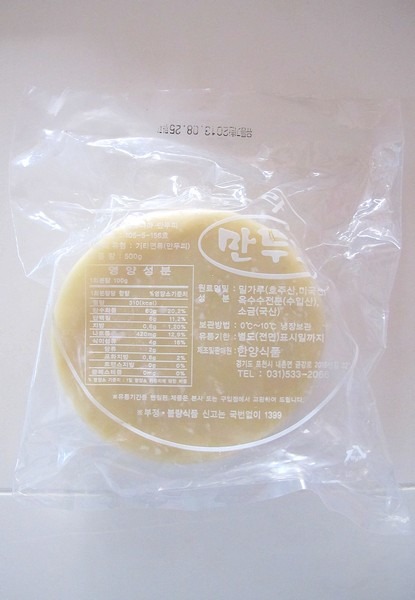
Directions
1. All of the ingredients except for the dumpling skins should be placed in a bowl and mixed by hand. Yes, get your hands in there. My Korean mother-in-law will tell you it won’t be delicious unless your hands have touched it.
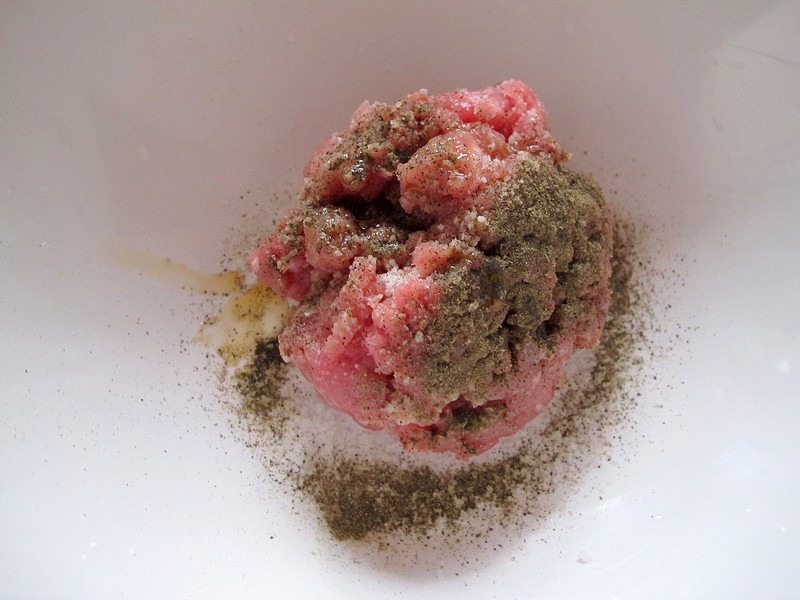


2. Place a spoonful of the mix in the center of the dumpling skins and dab some water on the inside of half of the skin. Fold the skin in half and squeeze together. For dumplings that will be fried make little folds in the outer edge. For dumplings that will be used in soup take the two furthest ends of the dumplings and fold them towards each other. Use water as the glue to attach the ends.
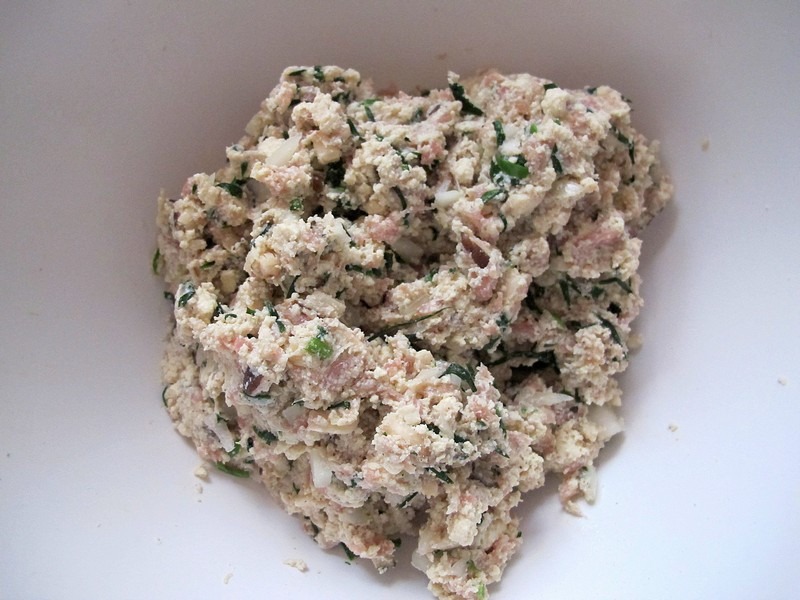
3. Dumplings can be fried, steamed or boiled and eaten immediately. For storage they should be placed on a plate or pan that can fit into your freezer. They should not touch as they can stick together and then you’ll have to cook them all in one go. Freeze them apart and when they are frozen enough you can remove the plate or the pan and they’ll be fine in a bag.
4. Steamed or fried dumplings can/should be eaten with equal parts vinegar and soy sauce and a dash of spicy red pepper mixed in a bowl for dipping if you’re going Korean style.
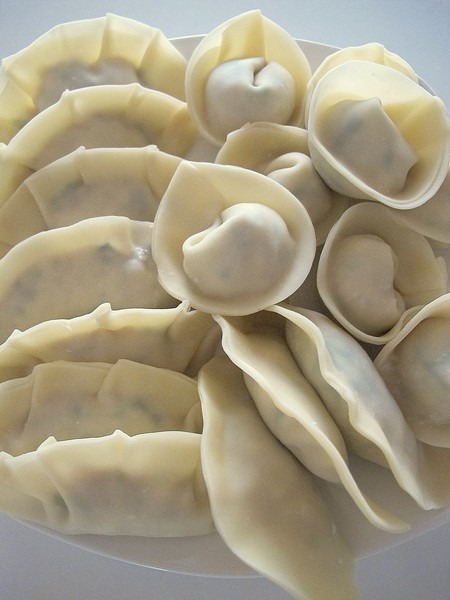
In Korea these are often made with meat, pork or beef or a mix of both, or with a kimchi filling. We had a few extra and I decided to surprise my husband with a few that were filled with an apple, cinnamon, and sugar mix. They worked out just as well! Happy eating.
Did you like this post? Pin It!
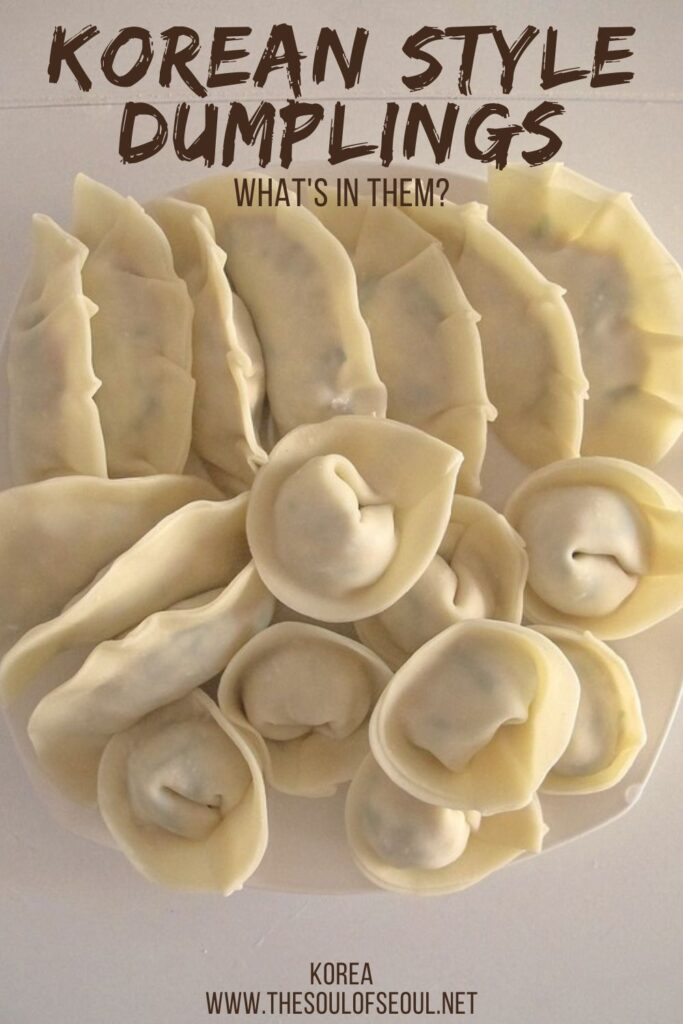
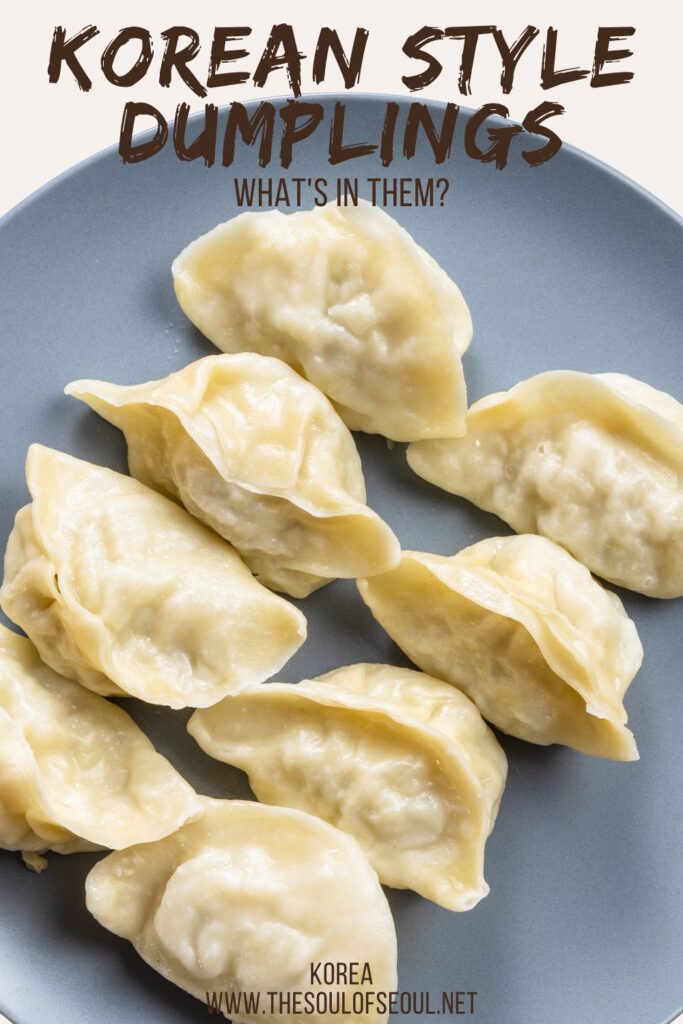

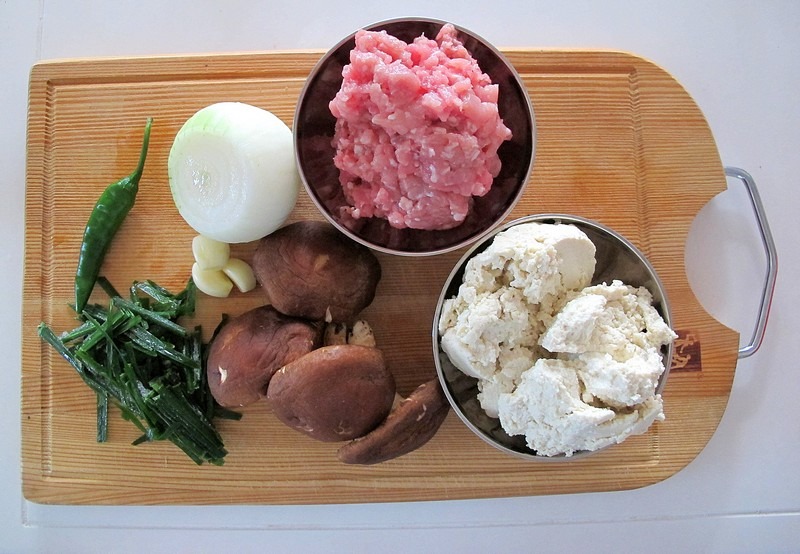
One Comment
Korea Net
Love your step by step explanations with added commentary! 😉 Chopped mung bean sprouts (숙주나물) seem to go well with pork too. I was told at a cooking school to try to get all the air out of the filling by tossing the rounded ball of filling into the mixing bowl multiple times. It seems to prevent the filling from crumbling up so much inside the skins, making it a bit more chewier. Great job!